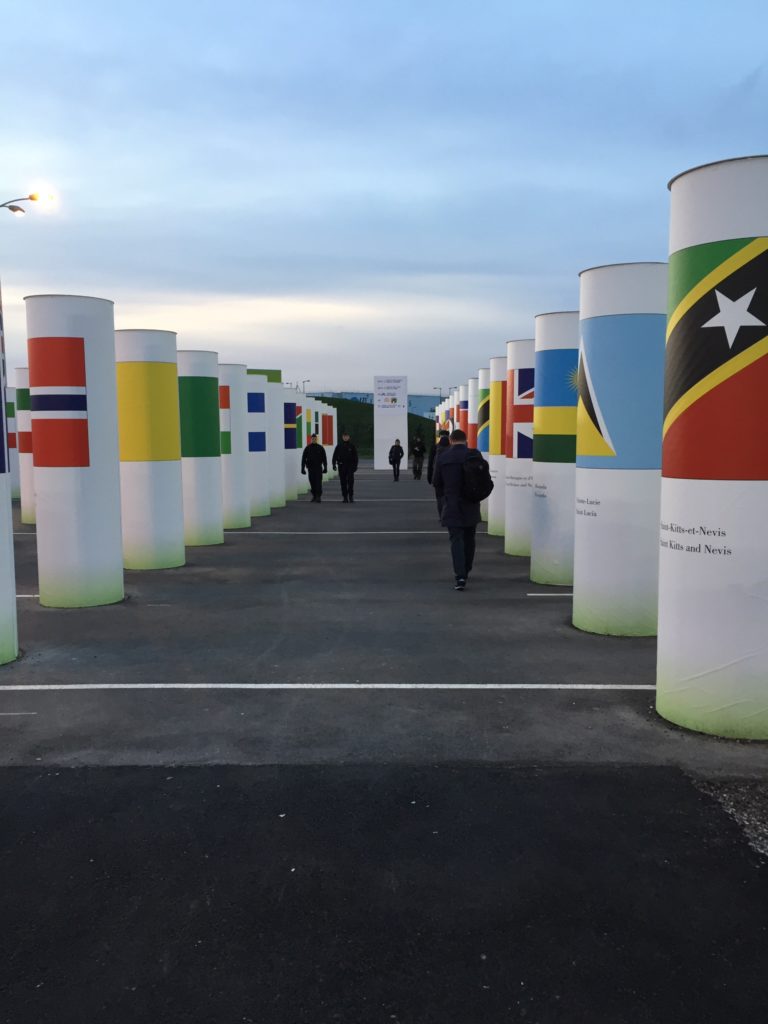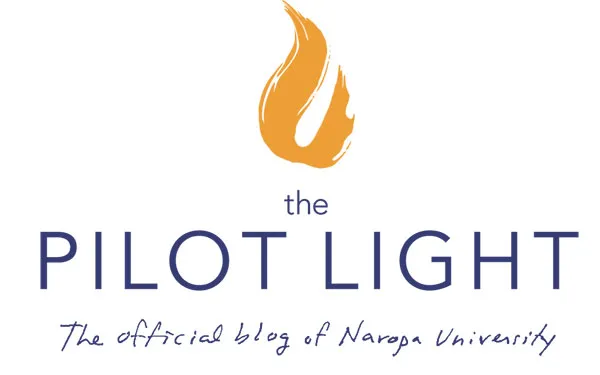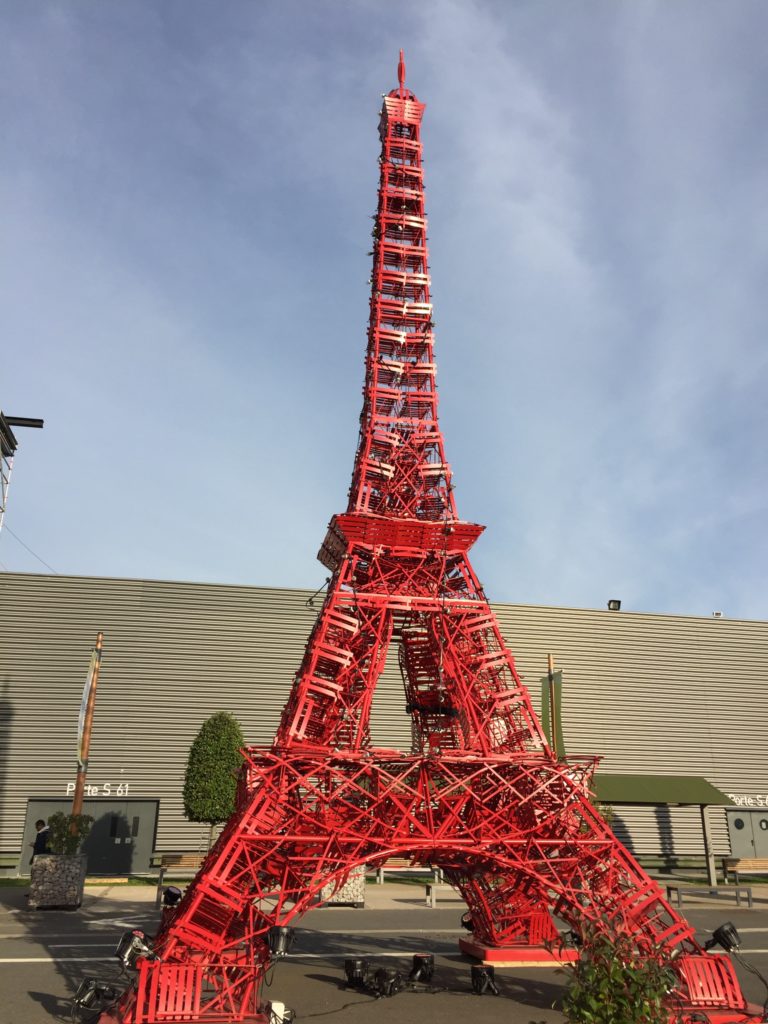
By Judy Lief
DAY ONE
After arriving on a red-eye from Washington D.C. on Saturday the 5th, Zarko Andricevic and I headed out by train and bus to the COP21 site, about an hour away from our hotel. There we met up with Ven, Chang Ji, and her assistant Guo Chan. We were all delegates of The Contemplative Alliance/ Global Peace Initiative of Women (GPIW) to the climate conference. This day was billed as the “action day,” that hopefully would mark a formal commitment to action on the part of the countries participating.
I had time to go to two panel discussions. The first was, “The Role of Ethics and Awareness in Climate Change Solutions.” Zarko, Chang Ji, and Sister Jayanti from the Brahma Kumaris were joined with experts from Germany and the United Nations Educational, Scientific and Cultural Organization (UNESCO). The second panel was on the role of civil society in climate change action. Chang Ji leads youth empowerment and leadership workshops around the world; Zarko opened the first Cha’n center in Europe (Croatia); and Jayanti and the Brahma Kumaris have not only worked to develop environmental awareness, but have also built massive solar power projects in India. They have “boots on the ground,” so to speak.
Two themes so far:
- In additional to intelligence, and emotional intelligence, how about spiritual intelligence? (Knowing who you are in relationship to others and to the planet.) (Jayanti)
- How to work with two contrasting scenarios: the doomsday one and the hopeful one.
DAY TWO
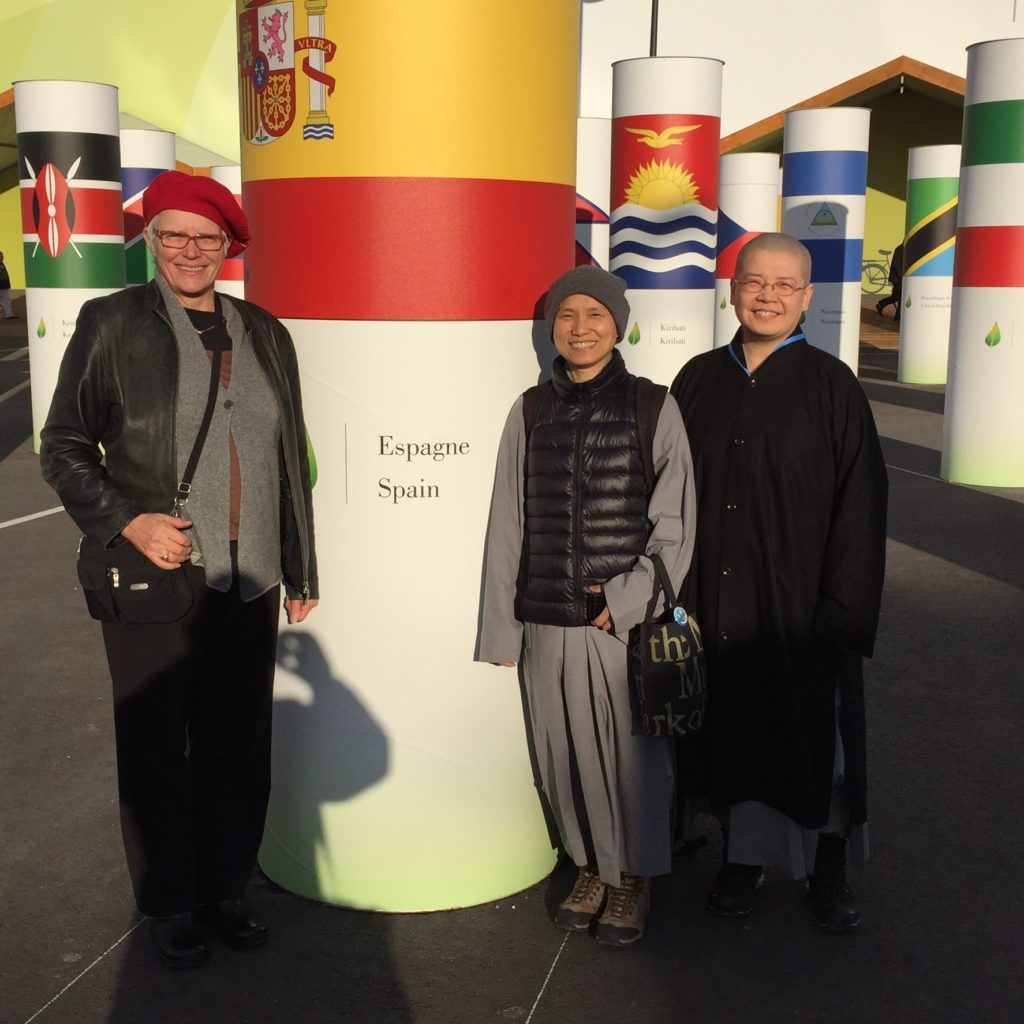 The second day was a full day of prayer at Lama Gyourme Rinpoche’s center Karma Dzong near the Paris zoo. It began with his opening chant accompanied by a Tunisian musician playing a viola de gamba. I noticed that Lama Gyourme had a beautiful voice, and it turned out he had made a number of CD’s with various world musicians. There was much chanting, including Gregorian chants, Cambodian refugee chants, Lakota chants, Sufi, Chinese Buddhist, etc. We were missing our usual Jewish contingent.
The second day was a full day of prayer at Lama Gyourme Rinpoche’s center Karma Dzong near the Paris zoo. It began with his opening chant accompanied by a Tunisian musician playing a viola de gamba. I noticed that Lama Gyourme had a beautiful voice, and it turned out he had made a number of CD’s with various world musicians. There was much chanting, including Gregorian chants, Cambodian refugee chants, Lakota chants, Sufi, Chinese Buddhist, etc. We were missing our usual Jewish contingent.
There were also long periods of silent meditation, readings, etc. My prayer offering was an invocation of the five elements, asking for their forgiveness, and rousing our aspirations to amend our relationship to the earth and the many beings who have been harmed by our actions (and inactions). Over dinner, I sat with Tiokasan Ghosthorse and a Malaysian Dharma Drum nun, and we had a lively discussion of Lakota language and spirituality in relationship to Buddhism and to the more dominant Western paradigm. Our thoughts were very much on the negotiations happening at COP21 and also on the recent terrorist attacks in Paris and in San Bernardino.
Themes:
- The power of bearing witness.
- The difference between seeing things as a problem to be solved vs. a relationship to be healed.
- The power of connecting across cultures, languages, and spiritual traditions in relation to real world issues and challenges.
DAY THREE
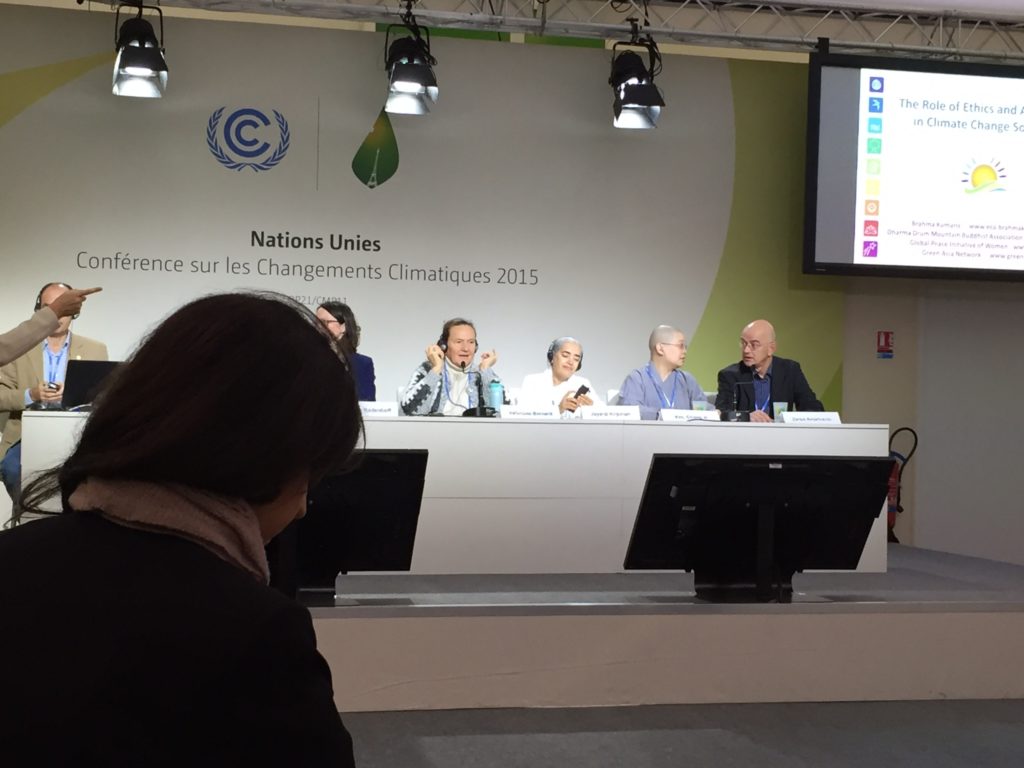 We spent this day at the Non-Governmental Organization (NGO) Forum, located in a gigantic former airplane hanger behind the main forum building. The theme for the day was climate change and social justice. The venue had more of a peoples’ feel, with more young people, more modest restaurants. There were many information booths, with themes like, the oceans, or forests, and representing a variety of environmental NGOs from around the world. A quite large and chaotic scene. A group of demonstrators gathered and marched around chanting, “What do we want? Climate justice! When do we want it? Now!”. Lots of chaos and heart.
We spent this day at the Non-Governmental Organization (NGO) Forum, located in a gigantic former airplane hanger behind the main forum building. The theme for the day was climate change and social justice. The venue had more of a peoples’ feel, with more young people, more modest restaurants. There were many information booths, with themes like, the oceans, or forests, and representing a variety of environmental NGOs from around the world. A quite large and chaotic scene. A group of demonstrators gathered and marched around chanting, “What do we want? Climate justice! When do we want it? Now!”. Lots of chaos and heart.
In the evening, we went to a reception sponsored by Karena Gore and Rick Clugston (Center for Earth Ethics, Union Theological seminary). The GPIW folks made up about a third of the crowd, with a smattering of other organizations focusing on spiritual and ethical issues regarding climate change. We were clearly vastly outnumbered at the UN Conference by the cap and trade negotiators, and such.
After the reception, we went to the memorial for the victims of the Paris shooting at the Plaza de Republique where we paid our respects. The scene in that neighborhood was so ordinary with people sitting at the many charming cafes, strolling in the beautiful mild evening, much like it must have been before the attack. It felt a bit surreal in that way.
